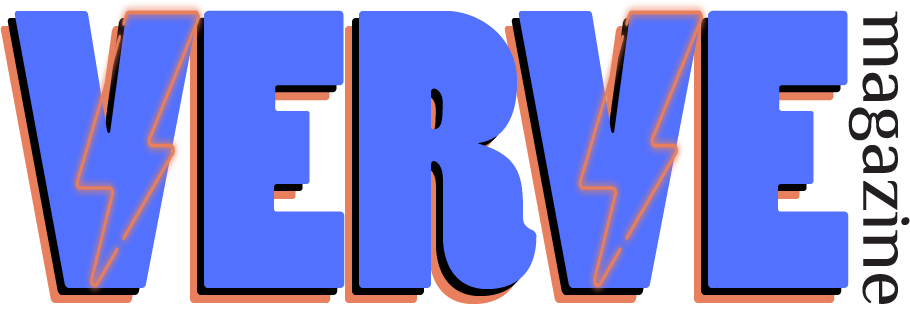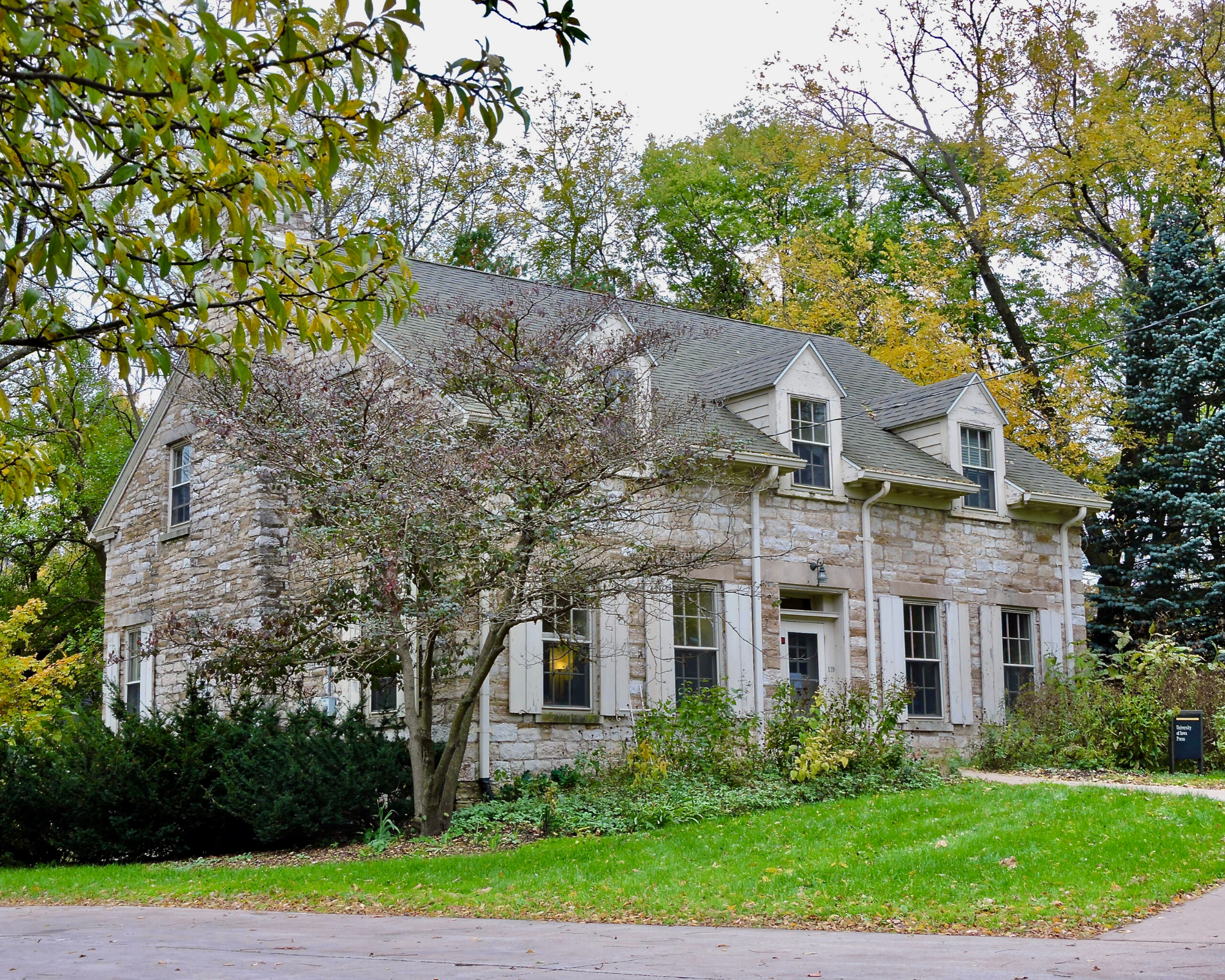Photos by Elisabeth Oster
Nestled between trees, flush with fall colors and quiet streets on the west side of the Iowa River, the oldest standing building in Iowa City lies. The two-story house is a welcoming, but relatively unknown presence on the sprawling campus, ripe with importance when it comes to Iowa’s bustling literary scene.
Known as the Kuhl House, its storied history begins with the origins of its limestone exterior, reportedly constructed with rejected limestone used on the lower portion of the Old Capitol building. The 179-year-old farmhouse’s history was detailed in length by heritage preserver Margaret Keyes in her book on home architecture in Iowa City.

Upon entrance, the historical charm is palpable on initial glance—old photos adorn the entryway while a richly-colored stair runner furnishes the worn wooden stairs. The small, quaint Kuhl House holds more than city history. Hundreds of books have passed through these walls since the University of Iowa Press began calling it home in 1997.
“This is where the magic happens,” UI Press Marketing Director Allison Means said, walking past crammed bookshelves and staff offices complete with colorful art and plants occupying each window.
Shelving with the press’s recent publications lines the entryway, emblazoned with titles like Austentatious: The Evolving World of Jane Austen Fans, Poems of the American Empire, and Superhero Thought Experiments: Comic Book Philosophy.
Within the house’s walls, every book the press has published in its 50-year lifespan resides somewhere in its two levels. A long table populated with chairs that feel reminiscent of a different time period is located at the center of the house where the press staff has formal meetings—all while seated next to a fireplace.
Means explained that the meeting place is the backdrop for book launches, where the acquisitions editor sells a new book to the rest of the staff.
When a book is introduced to the Kuhl House’s inner-workings, the managing editor utilizes a database of freelancers for copy editing and fine-tuning the manuscript after the book passes through acquisitions.

“As that’s happening, we get page proofs in, essentially what the book will eventually look like, but on a larger scale,” Means said. “There’s always going to be first errors in that proof because as books go from a Word doc to an InDesign file to a PDF file, there are many steps to get it to actually look like a book.”
Within those steps, decisions have to be made on everything from cover design and e-book format to back jacket endorsements. Promotion for each book simultaneously begins, usually, months before the book is ready for publication.
According to Means, there’s not a single day of the year where the UI Press is working on only one book. The typical pace is five or six books in the works at any given time. This allows the small full-time staff of five, along with a part-time office manager and graduate assistants, to publish around 35 books a year. Means said the press’s resulting output of yearly books is the highest amount for a university press of its staff size.

Priding themselves on being the only university press in the state, the staff focuses on publishing books about the region, both Iowa and the Midwest as a whole. Whether it be a series of books on theater, art or history, the press works to disseminate knowledge that isn’t necessarily commercial.
“Any university press is going to focus on the strengths of their university,” Means said. “We are unique in that the strengths of our university is writing.”
Due to its literary history and the presence of the University of Iowa’s Writers’ Workshop, Iowa City
“It’s a burgeoning theory in academia where you’re talking about things that just didn’t exist 50 years ago,” she said. “Of course, people have always been fans of things, but there’s a really changing world around how we communicate that affects us as humans. There were these professors that were huge fans of the TV show Supernatural, so they wrote a book literally about middle-aged women fans who were big fans of a show that wasn’t even really written for their demographic.”
On the other end of the spectrum, the university press is currently working on the publication of a memoir on opioid addiction and parenting.
“It’s really been a challenge because it’s a sad story and it doesn’t have a happy ending like so many opioid addiction stories publicized in the media,” Means said. “But, it’s a really important one—people need to have stories like this to connect to.”
Although an 1840 colonial-style house would be considered an unconventional workspace for a publishing house whose books are nationally-awarded and recognized, Means says it allows accessibility among the staff.

“Our doors are literally always open since we’re always talking and meeting,” Means said. “We love being here instead of a cubicle.”
For Means, the intimate book cycle has allowed the press to have more personal relationships with its first-time authors who often feel that publishing is an “insider industry.” Each room of the house functions as a literal step in the process and creation of knowledge. Books begin their life cycle in the acquisitions office on the first floor, eventually passing through the hands and upstairs doors of the managing editor, director, design and production editor, and marketing director. Their office desks feel out of place among the stacks upon stacks of books, new and old, that dominate the space; each literary title and book spine feels as much a part of the house as the bricks that form its exterior.
“Every time an author comes to visit, they talk about how they’re so glad their book was published here in this space,” Means said. “It just feels like the book has a home, and we feel that way too.”

